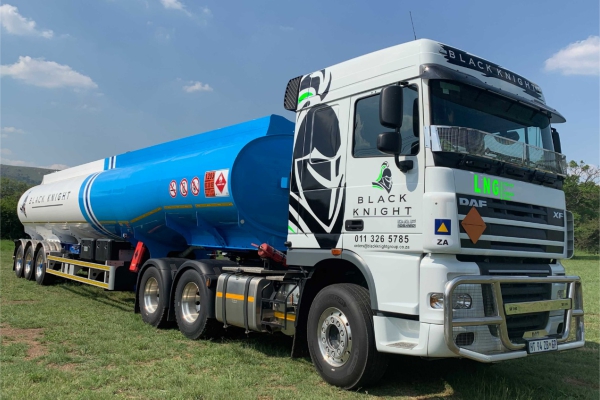Natural gas provides over 20 percent of the global power, industry and transport energy requirements and it is one of the cleanest, safest and most useful forms of energy on the planet. Babcock tackling carbon emissions
Babcock tackling carbon emissions
Mark Gavin, Sales Director for Babcock’s Transport Solutions business, says that natural gas as an alternate fuel source has been a significant topic in South Africa’s automotive industry for years, due to the growing necessity to curtail dependency on conventional fossil fuels, the soaring price of diesel and petrol, and the need to reduce harmful CO₂ emissions. While dual fuel LPG (liquid petroleum gas) hybrids have had small-scale success in South Africa’s public transport sector, Babcock is the first to offer fully supported natural gas dual fuel DAF vehicles to the long-haulage and regional transport segments.
“We have had numerous enquiries about the possibility of dual fuel vehicles, and the first handful of DAF test trucks capable of compressed natural gas (CNG) conversion are now ready for the South African regional transportation sector to benefit from,” says Gavin. He adds that the dual fuel trucks will be capable of using various forms of natural gas such as CNG and eventually liquid natural gas (LNG) with minor engine modifications, allowing the DAF Trucks to seamlessly alternate between natural gas and conventional fuel using a two-stage pressure regulator to ensure optimum gas supply.
Natural gas is considered as safe as diesel or liquid petroleum, and all gas tanks meet the same standards for impact and puncture resistance as an under-car petrol fuel tank while also vastly exceeding the strength requirements. As it is lighter than air, natural gas also dissipates quickly into the atmosphere, reducing the risk of fire pools, while its high combustion temperature of 600°C makes it difficult to ignite.
When compared with vehicles using conventional fossil fuels, natural gas vehicles can also produce significantly lower amounts of harmful emissions such as greenhouse gases and carbon dioxide. With the inevitable introduction of carbon credits in South Africa, the economic and environmental importance of natural gas in reducing a company’s carbon footprint is being increasingly emphasised.
Gavin says that Babcock is currently working with two different conversion partners to ensure that the kits are fitted on the DAF Trucks to the highest quality standards in South Africa. The cost of the CNG conversion kit is usually recovered within the first 18 to 24 months of the vehicle lifecycle, depending on mileage covered.
“The beauty of this system,” adds Gavin, “is that once the first economic life of the vehicle is reached, the kit can be transferred onto another vehicle relatively easily, and the original vehicle can be sold again operating on standard diesel, and therefore maintaining its versatility.”
Babcock has already supplied DAF Trucks operating with dual fuel systems into the southern African market and is achieving impressive results – most notably with Black Knight Logistics who were not only one of the first operators to take delivery of the DAF CNG solution, but were also pioneers of the dual fuel technology, particularly on the XF 105.460 models.
Based on this operation, and further extensive testing, other benefits of natural gas include:
- Good fuel efficiency with a high energy content and excellent price/kilojoule ratio; and a competitive price that can deliver 20 to 40 percent cost savings over petrol and diesel (up to 50% substitution for diesel has been recognised in operation)
- A cleaner burning fuel that reduces residue, stench and carbon build-up, thereby lowering maintenance requirements, extending service intervals and prolonging overall engine life
- A stable pricing schedule, as natural gas is not prone to constant price fluctuations as seen in crude oil products
- Potential easy access and various distribution options such as through pipelines, compressed high pressure cylinders, or liquefied by freezing in cryogenic tanks.
- VAT can be claimed on natural gas
- Savings for the transporter of up to R1.50 per kilometre.
The South African government has already addressed the benefits of natural gas, calling it the backbone of regional economic integration among Southern African Development Community (SADC) member countries. Future legislative plans include the establishment of a regional natural gas committee tasked with promoting the inclusion of gas in the regional energy mix.

